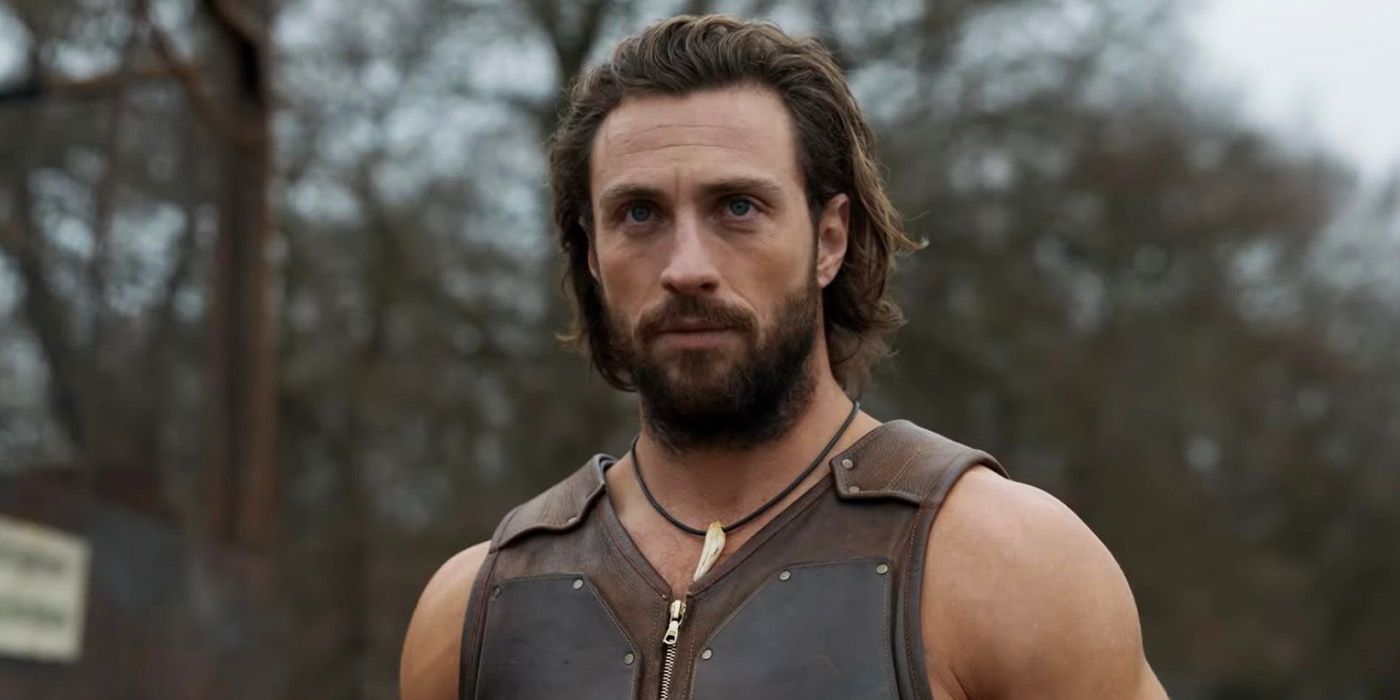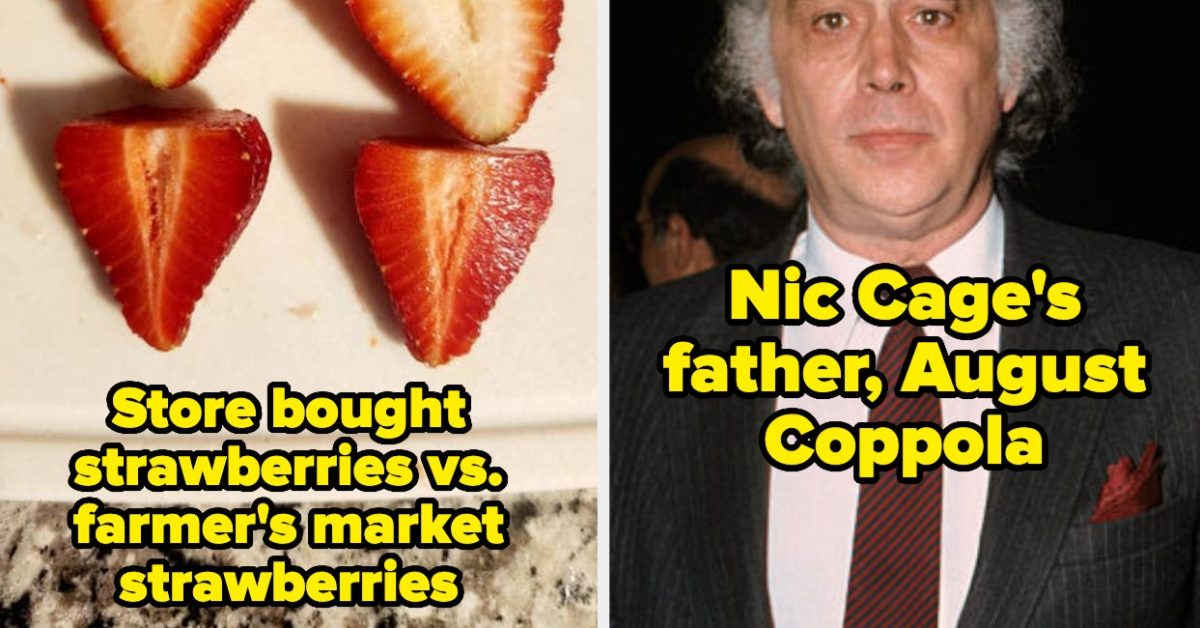
‘Evil Does Not Exist’ Review — Ryusuke Hamaguchi Gets Quieter, Reflective
Sep 18, 2023
Ryusuke Hamaguchi, the writer-director behind such recent gems as Drive My Car and Wheel of Fortune and Fantasy, originally intended his latest film, Evil Does Not Exist, to be a series of silent visuals that would accompany new music from his Drive My Car composer Eiko Ishibashi. At the beginning of Evil Does Not Exist, it’s easy to think that’s exactly what we are going to see, as Ishibachi’s score plays over Hamaguchi’s shots of snow-covered trees under a gorgeous sky. The opening shot lasts almost too long, and the music comes to an abrupt stop, as if Hamaguchi is assuring us that Evil Does Not Exist will be more than just an accompaniment to another beautiful Ishibashi score.
Yet Hamaguchi never strays too far from this original idea in Evil Does Not Exist, as we follow Takumi (Hitoshi Omika)—a jack-of-all-trades in the small Mizubiki Village outside Tokyo—and his daughter, Hana (Ryo Nishikawa). The pair quietly collect water and Takumi cuts wood for several minutes. It’s an extremely quiet intro, where the most surprising thing that happens is the discovery of a wasabi plant, which will be harvested for a nearby noodle shop.
‘Evil Does Not Exist’ Is Intentionally Slow—and That’s What Makes It Wonderful
Image via TIFF
But like he did with Drive My Car, Hamaguchi makes the silent, deliberate moments essential to his story. As we get to explore the woods with Takumi and Hana, we are shown the beauty of the natural resources, the peacefulness of this community, and the reliance on nature for their way of life. Hamaguchi is building this world by pulling back, letting us meditate in the area and see the wonders that these people see every day—an essential element for what’s to come.
After setting up this land, Evil Does Not Exist primarily focuses on a company and its two representatives (Ryuji Kosaka and Ayaka Shibutani) who come to the area in order to discuss their plans to build a glamping retreat on the land. Almost immediately, the people of the land realize the problems with the plans: their septic tanks will pollute the nearby water, deer will be able to jump into the glamping area, and a lack of employees means guests will be largely unsupervised to do whatever they want. As the people push back against the company, its two representatives begin to see the flaws in the business model and spend time in the area to understand what their company hasn’t seen.
Evil Does Not Exist is a largely quiet, contemplative film that often feels more like an attempt to create a mood than it is reliant on any plot. We watch as Takumi and Hana explore the land, we see the company confront the people of Mizubiki, and then Takumi and Hana once more show the two representatives the land—who wonder at the area they may be building over. Hamaguchi takes a nuanced approach to both sides and never makes the encroaching company the “villain,” even if we do understand their plan is deeply flawed. Hamaguchi is seemingly trying to show how such ecological problems can often be solved by listening and understanding the land, but this never feels like the focus to the point of overrunning the quieter ambiance of the film.
Because of this, the way Hamaguchi decides to end Evil Does Not Exist seems particularly odd, a surprising action that seems out of line with the rest of the film. This isn’t a sort of Jeanne Dielman approach, but rather, almost like Hamaguchi doesn’t know how to quite end this film that hasn’t relied on story all too much. It’s a small jolt that feels out of place with the tone that Hamaguchi has shown us so far.
RELATED: TIFF 2023: The Movies We’re Looking Forward to Most
But Evil Does Not Exist might be most fascinating in that this is how Hamaguchi decided to follow up his Oscar-winning Drive My Car—not by crafting something bigger and using his newfound popularity to push for larger opportunities. Rather, Hamaguchi has scaled back even further, making something simple, yet elegantly told. Its more of an experiment than an actual narrative, and the result is quite beautiful, albeit still a bit minor comparatively.
‘Evil Does Not Exist’ Lets the Score and Visuals Take Over
If anything, by not focusing so much on an actual story, Hamaguchi allows for the other aspects of the filmmaking to shine through. Naturally, Ishibashi’s score becomes the centerpiece of the story, playing over gorgeous imagery, then cutting out in shocking fashion when we’ve finally been lulled into the sense of security it offers. As previously mentioned, Hamaguchi originally intended this to be all about the visuals, and he still accomplishes that with the help of Yoshio Kitagawa’s stunning cinematography. The way he’s able to frame these walks through the woods is compelling in its own right, and watching something as simple as the snow drift away while Takumi cuts a piece of wood is captivating.
Hamaguchi’s Drive My Car worked so beautifully because of the smaller, quiet moments of life, the drives from one place to the next, and the undiscovered moments that we keep hidden. Evil Does Not Exist turns these moments into an entire feature-length film, and while it might seem slight at times, the approach is wonderful in its own right—a master filmmaker taking his time and embracing the silence. After a Best Picture nomination, most filmmakers wouldn’t head in this direction, but it’s wonderful that this is where Hamaguchi decided to go next.
Rating: B+
The Big Picture
Evil Does Not Exist is a contemplative and visually stunning film that prioritizes mood over plot, showcasing the beauty of nature and the importance of listening and understanding. The film explores the clash between a company planning to build a glamping retreat and the community that opposes it, delving into ecological problems and flawed business models. While the film’s ending feels somewhat out of place, it is a testament to director Ryusuke Hamaguchi’s decision to scale back and create something simple yet elegantly told, highlighting the power of visuals and music.
Evil Does Not Exist made its North American premiere at the 2023 Toronto International Film Festival.
Publisher: Source link
I’m Pretty Much The Dumbest Guy On Earth So These 22 Absolutely Incredible Pictures Put My Brain In A Blender Immediately After I Saw Them
I'm Pretty Much The Dumbest Guy On Earth So These 22 Absolutely Incredible Pictures Put My Brain In A Blender Immediately After I Saw Them 1. This is what Nicolas Cages' father, August Coppola, looked like: 2. This is how…
Apr 28, 2024
Reese Witherspoon & Daughter Ava’s Resemblance Is Wild in Twinning Pic
Reese Witherspoon Hit the 2024 Golden Globes Red Carpet with a Special Date: her eldest son Deacon PhillippeReese Witherspoon and Ava Philippe walk the line of being impossible to tell apart. In fact, the Legally Blonde star and her 24-year-old…
Apr 28, 2024
RuPaul’s Drag Race All Stars 9 Reveals Cast And New Twist
RuPaul's Drag Race All Stars 9 Reveals Cast And New Twist The RuPaul's Drag Race TV universe stops for no one. Just last week, Nymphia Wind was crowned the winner of Season 16. And days later, Drag Race has announced…
Apr 27, 2024
See What Gifts Beyoncé Sent a 2-Year-Old Fan After Viral TikTok
Tyler Fabregas is surrounded by Beyoncé's sweet embrace. After the 2-year-old went viral for calling the Grammy winner his friend, she proved the feelings were mutual by sending him and his family a loving care package. Alongside a photo of…
Apr 27, 2024











